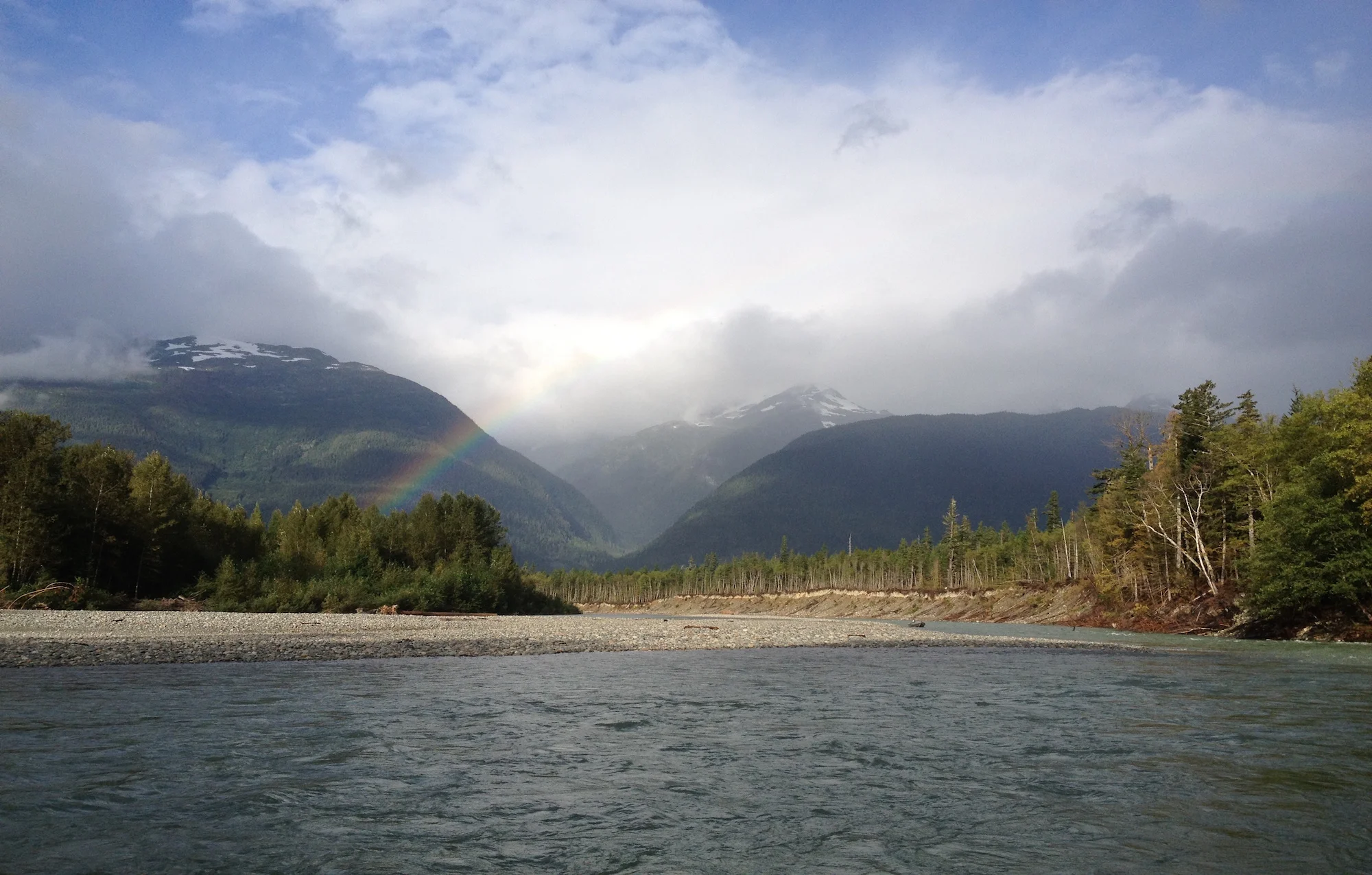I’d gotten used to the vacant expressions and slow polite nods.
An unsure, “hmm” or furrowed brow conveyed an utter lack of understanding — not only for my occupation, but for the person I defined myself to be.
“A fly fisher?”
Through the years, uncomfortable silence hung off airplane tray tables, taxi headrests, and restaurant chandeliers. I left a morbid trail of stillness everywhere I went, and had come to accept that while fly fishing was my world, the sport was mostly unfamiliar to everyone else’s.
As a teenager, on one of many solo river explorations, I pushed and ducked my way through a game trail — partaking in a tiring retaliation of ‘slap’ with branches that struck at my limbs, and I at theirs. Alone and wary, my imagination ignited as it did so often in the untamed forests of British Columbia.
I fantasized that I was a heroic warrior; there to avenge the evil that crept amidst the fallen cedars through the gorge. Placing my feet in stride with the imaginary prints of tribal leaders, I gripped my rod handle like a spear and envisioned that I was one of them; stalking, surviving, protecting what was mine.
Eventually such excitable hikes succumbed to maturity — my imagination tamed by the genuine dangers I had to actually beware of: bears, steep drop-offs, turbulent water, lurking men, and approaching nightfall were all but a few. An appreciation of mortality had found its way into my reality, therefore replacing the fun, self-inflicted dramas that once entertained my treks.
Age will do that to the clarity-seeking wanderer. It strips them of fantasy, exposing the hard facts — relentless erosion of torrent on stone. Sometimes the river is much more desirable when the bottom can’t be seen at all.
And so I changed.
But I still maintained the association between heroism and fly fishers.
The true fly fisher is the Charlie Chaplin of the sports world. Tousled and quiet, he lives in the shadow of myriad endurance athletes, thankful for the shade and lack of color it brings him.
He thrives in this solitude and avoids the glare of uncomfortable spotlights. He encourages uncelebrated triumph, for he knows his only competition is himself. He applauds the olympians, the goalies, the batters, and the boarders on their awarded glory — he’s relieved such eminence is not his.
However, as the light falls and the victories cease, it is the fly fisherman who appears in the darkest of days to champion the feats that threaten his stadium.
He seeks no recognition, requires no accolades, requests no ovation. He understands the importance of his sport, and the need to protect the natural resources that sponsor him.
The true fly fisher accepts that the mind is stronger than the body, and so uses it to speak on behalf of the natural world during times when it cannot speak for itself.
The two are mutually mute, only speaking when forced to — one through advocacy, the other through disaster.
Yes, the fly fisher is a hero in my mind.
Yet sometimes I fear that our sport is on its way to replacing the true heroes with the photogenic ones — the ones who live for Instagram follows and free gear… a new FaceBook post every four hours to desperately drive up traffic. And for what reason?
I fear we forget that having a voice means doing well with it — rather than using it to bathe in vanity and hefty discounts.
I fear that our true heroes are being discouraged from the sport altogether — what’s more, I fear that I can understand why this is.
There’s much to say on this topic and perhaps (for obvious reasons) I should stay far away from the controversy — instead opting to quietly let our sport’s future play itself out. But I will not shy from my perspective that I am saddened by what I am seeing — such potential in a world of networking, lost in all the “glory”.
Let’s raise the bar for what glory is supposed to look like. Use your voice, make a difference — it’s time.
~AV






